
NO&T Dispute Resolution Update
NO&T Asia Legal Review
In a recent decision dated 10 May 2023, the Singapore High Court in Hyflux Ltd (in compulsory liquidation) and others v Lum Ooi Lin [2023] SGHC 113 (“Hyflux”) permitted a plaintiff to put up an undertaking provided by its litigation funder as an adequate form of security for costs. This judgment marks another step in Singapore’s growing acceptance of litigation funding for Court proceedings.
Litigation funding is an arrangement in which the costs of entering into a legal dispute are paid not by the plaintiff themselves but by a third-party litigation funder, usually in exchange for a share of the proceeds recovered from the resolution of the dispute. The provision of litigation funding is seen to improve access to justice – litigation funding allows plaintiffs the chance to have their day in court and pursue their rightful claims against well-resourced opponents, especially if they would not normally have had the resources to do so on their own.
Traditionally, litigation funding was prohibited in Singapore. This changed in 2017, when amendments were made to the Civil Law Act to make such acts no longer unlawful. This first round of amendments permitted litigation funding only for international arbitration and related proceedings.
In 2021, this was further broadened by a second round of amendments to the Civil Law Act, which additionally permitted litigation funding for domestic arbitration and related proceedings, proceedings commenced in the Singapore International Commercial Court, and mediation proceeding related to either of the above. The Ministry of Law in its press release explaining this second round of amendments stated that the intention behind broadening the scope of permitted disputes was to offer businesses “an alternative avenue to fund meritorious claims”.
Security for costs is a form of interim relief awarded by the Singapore Courts, whereby the plaintiff is ordered to provide security for the potential costs that may be incurred by the defendant in the course of the proceedings. Traditional forms of security for costs include the provision of a bank guarantee by the plaintiff, or the provision of a solicitor’s undertaking by the plaintiff’s solicitors.
The purpose of security for costs is to protect defendants against the risk that they may succeed in their defence but then be unable to recover their costs from an impecunious plaintiff.
In Hyflux, there had been an application by the defendant for a number of the plaintiffs to provide security for costs. At first instance, the Registrar ordered that the plaintiffs should provide security:
The plaintiffs appealed the decision, seeking to restrict the form of the security for costs to the undertaking by the litigation funder only, rather than having the form of security rest solely upon the defendant’s wishes.
In the appeal to the High Court, two questions lay before the Judge for decision:
The Court allowed the plaintiffs’ appeal, and ordered that the plaintiffs were entitled to propose security in the form of an undertaking by their litigation funder; and further that the form of the undertaking that had been provided was adequate for the purposes of security for costs.
In coming to its decision, the Court noted that the plaintiff should not be restricted in the form of security they elect to provide so long as the security itself is adequate. In this respect, the Court held that “the court will not insist on a fixed form of security for costs”, especially as there is no express wording in the Singapore Rules of Court to this effect.
Applying this principle, the Court held that the fact that the undertaking provided as security was in the form of an undertaking from the plaintiff’s litigation funder did not make the undertaking an inadequate security. Rather, whether or not the undertaking would be considered inadequate was a question to be determined on the unique facts of each case, and the plaintiff would bear the burden of proving that the security it had provided was adequate. In this respect, the Court did note that certain forms of security, such as a bank guarantee or solicitor’s undertaking, may be “more readily characterised as being adequate” due to their historical usage; however, this does not prevent less ‘traditional’ forms of security from being considered adequate on the facts of their own unique cases.
In Hyflux itself, the Court considered the undertaking from the litigation funder to be an adequate security, as it “provides a fund or asset against which the defendant can readily enforce an order for costs if necessary”. The factors the Court took into account in coming to this conclusion included:
The clear and concise judgment of the Court in Hyflux shows clearly the growing importance and role of litigation funding in the dispute resolution landscape in Singapore. The Court has indicated that the door is open to such ‘non-traditional’ forms of security, providing plaintiffs with more options when faced with an order for security for costs.
The Court’s judgment also highlights that a separate inquiry into whether or not the security is “adequate” would be required, and the factors examined by the Court in Hyflux should serve as a useful guide to parties, who consider using a litigation funding and seek to put up security for costs, to show what the Court would be looking out for in determining that security is adequate.
This newsletter is given as general information for reference purposes only and therefore does not constitute our firm’s legal advice. Any opinion stated in this newsletter is a personal view of the author(s) and not our firm’s official view. For any specific matter or legal issue, please do not rely on this newsletter but make sure to consult a legal adviser. We would be delighted to answer your questions, if any.
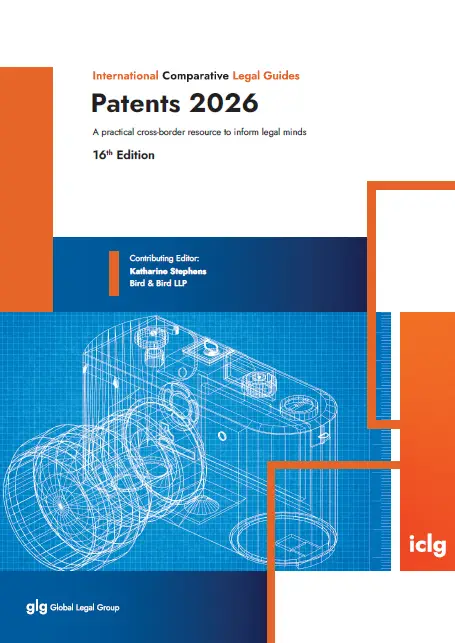

(October 2025)
Kenji Tosaki
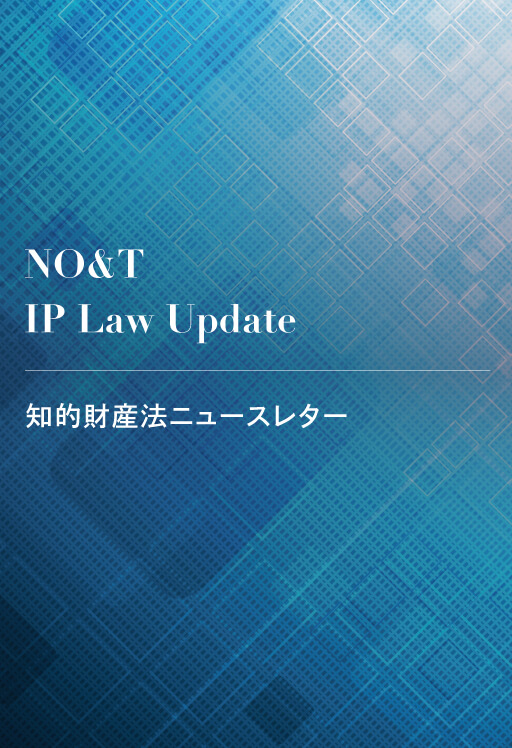

Kenji Tosaki, Takahiro Hatori, Nozomi Kato (Co-author)


Claire Chong, Nozomi Kato (Co-author)
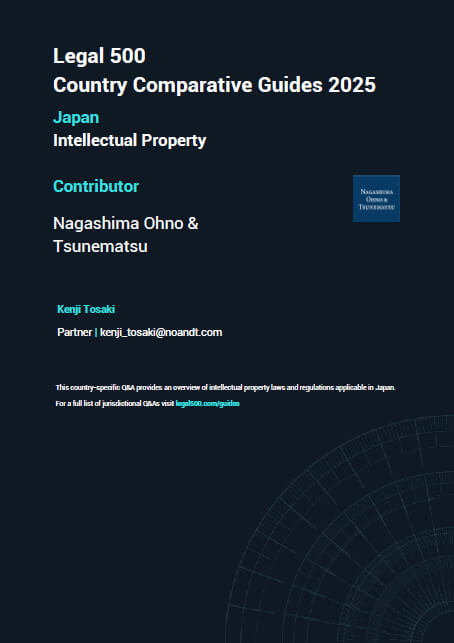

(September 2025)
Kenji Tosaki


Justin Ee, Kennosuke Muro (Co-author)
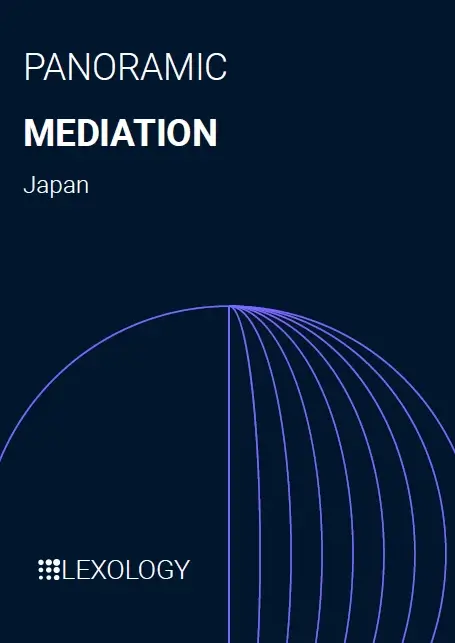

(July 2025)
Junichi Ikeda, Tomohiko Nabeshima, Akiko Inoue (Co-author)
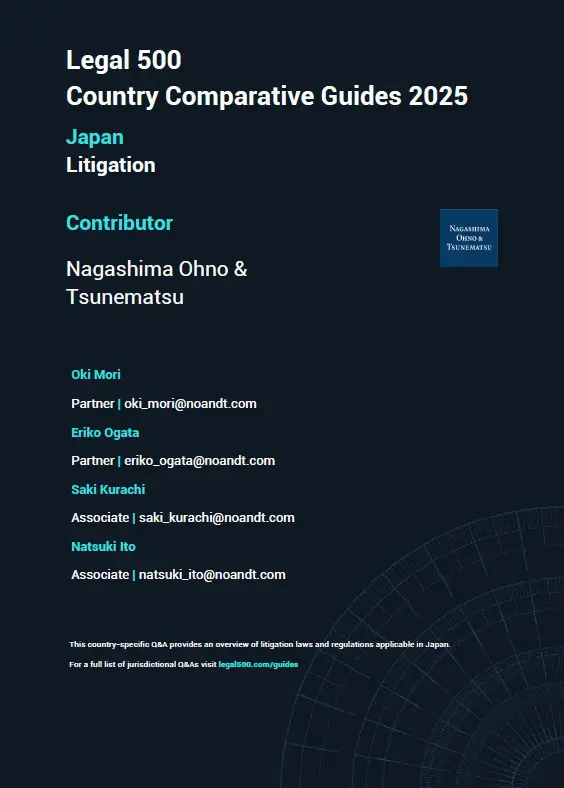

(July 2025)
Oki Mori, Eriko Ogata, Saki Kurachi, Natsuki Ito (Co-author)


Hiroki Tajima


Supasit Boonsanong, Thananya Pholchaniko, Phareeya Yongpanich (Co-author)


Patricia O. Ko


Claire Chong, Nozomi Kato (Co-author)


Yuan Yao Lee


Supasit Boonsanong, Thananya Pholchaniko, Phareeya Yongpanich (Co-author)


Patricia O. Ko


Claire Chong, Nozomi Kato (Co-author)


Yuan Yao Lee


Claire Chong, Nozomi Kato (Co-author)


Justin Ee, Kennosuke Muro (Co-author)


Kara Quek, Kennosuke Muro (Co-author)


Annia Hsu, Kennosuke Muro (Co-author)